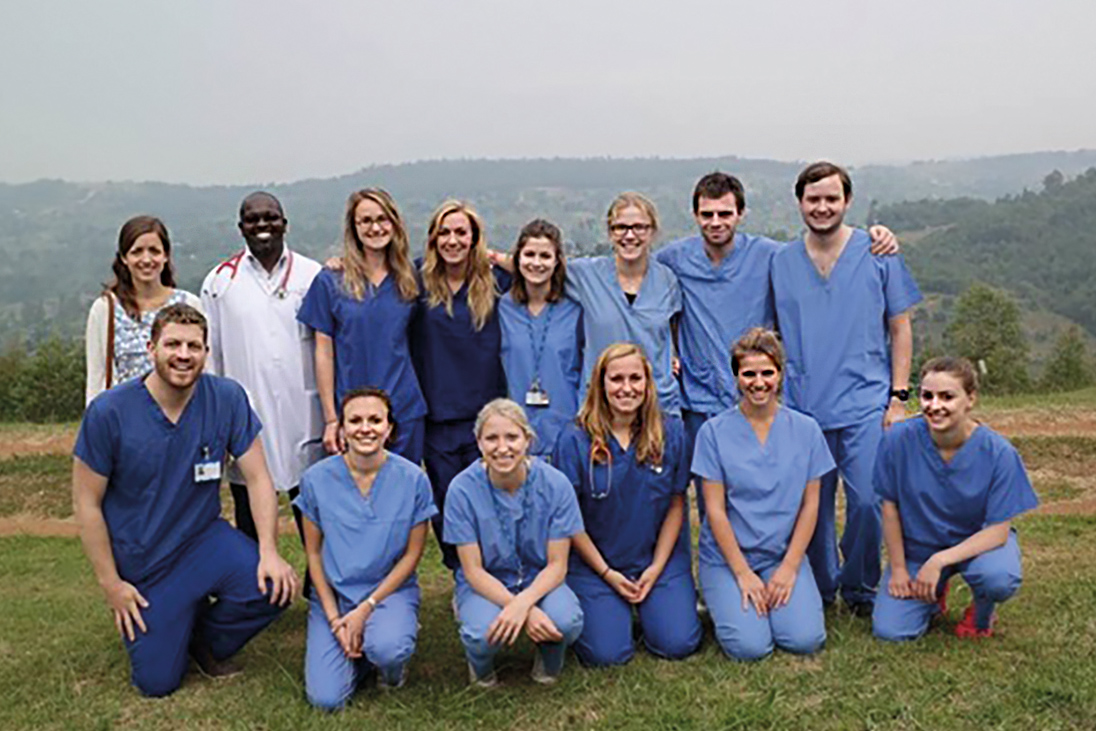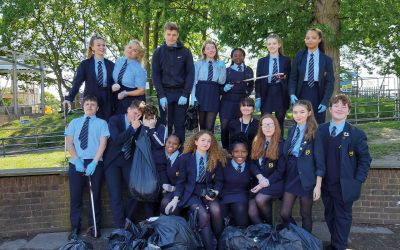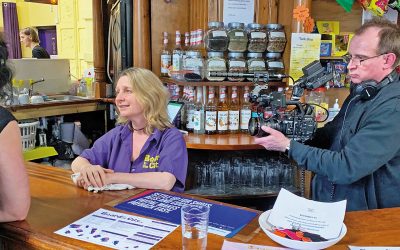It was in 1993 when Rotarian David Morgan from Porthcawl Rotary and who was President-Elect of Rotary in Great Britain and Ireland, hatched the idea of the Rotary Doctor Bank.
David had seen the work done by the Rotary Doctor Bank in Scandinavia and felt that there should be something similar here.
And so, under the chairmanship of George Mercer from Cardiff Rotary, the Rotary Doctor Bank of Great Britain and Ireland was formally launched in the Welsh capital on July 5th, 1994.
The newly-formed committee faced several immediate tasks; to make the Rotary Doctor Bank’s presence and service known abroad, to locate hospitals in need, to raise funds and attract healthcare professionals willing to give up some of their time to serve in hospitals abroad as volunteers.
It was decided early on that, as the Scandinavian Doctor Bank concentrated their efforts on helping hospitals in Kenya, we would start in Uganda.
Contact was made with Kyambogo-Kampala Rotary and on a fact-finding visit many hospitals in the Ugandan capital were visited in May 1995.
There are many Mission Hospitals in Africa, founded and staffed by Catholic nursing orders and even today there are some nuns originally from Britain and Ireland who have devoted their lives to helping the poor and needy.
A number of volunteers made significant changes to the lives of people in the regions they visited.”
It was decided to only send volunteers to mission hospitals since this was where there was the greatest need.
Our first volunteer was the late Dr Robert Bratman from Rotary Aberdare. He had spent his life working as a gynaecologist in California and on retiring in 1994, he moved to Wales as his wife was originally from Aberdare.
Robert spent seven weeks in 1995 on the island of Pemba, between Tanzania and Zanzibar, and on his return, he spent many years as a medical advisor to the Rotary Doctor Bank.
The late Dr Bill Duff, a former member of Rotary Porthcawl was the first volunteer to visit Kamuli Mission Hospital in Uganda, he spent two months there in 1995.
Seven years ago, we arranged for two final year students from Bristol University Medical School to visit Kamuli Hospital on their elective visit.”
When Bill arrived in Kamuli he was told, very firmly, that it was not safe for Europeans to go out alone, so whenever he left the hospital grounds, he was accompanied by an armed guard.
This was the start of a long association with Kamuli Mission Hospital and we have sent more volunteers there than any other hospital.
The situation is now much improved so our volunteers can move around quite safely.
A number of volunteers made significant changes to the lives of people in the regions they visited.
Rotarian Dr Tim Jenkinson, a GP from Lancaster, took his wife, Gillian, to Kamuli. Gillian was a retired biology teacher who volunteered to teach at the local school.
She soon realised that there was no form of sex education carried out at the school and as AIDS had started in Uganda and is still a big problem there, this was very important.


Students from Bristol University Medical School on a visit to Uganda
Gillian started a programme of sex education in the school, which she reinforced during many subsequent visits. The programme is still in existence and has spread to other schools in the area.
Rotarian Dr Tim Peet, a surgeon from the Channel Islands, raised money to build a new wing complete with an operating theatre, in Kitovu hospital in the Ugandan city of Masaka, for which he was awarded an MBE in the 2011 Queen’s Birthday Honours.
Another Rotary volunteer, Dr Jim McWhirter, a retired GP from Henley-on-Thames, has transformed the run-down buildings at Kamuli into modern hospital wards and operating theatres, which will ensure the future of the hospital for many years to come.
This is thanks to the aid of District Grants, Matching Grants and Global Grants.
Jim also introduced computers into Ugandan hospitals to help with administration and stock control.
One of the first students who went to Kamuli has now qualified as a doctor and has already visited Kamuli as a volunteer.”
With correct training and on-going support, this is proving to be very successful and the hospitals are finding that they have more money to spend on equipment buildings and staff recruitment.
In March 2015, Jim was awarded a ‘Service Above Self’ Award for his work in Uganda. This is the highest award that Rotary can make and a maximum of 150 are made worldwide each year.
Jim is currently undertaking a refurbishment at the Freda Carr Hospital near Ngora in Eastern Uganda, again with the help of a Rotary Foundation Global Grant.
Our latest venture is to support the Little Angels Orphanage near Ruhija in South West Uganda, which is home to 330 children.
Dr Andrea Rauprich, a member of Rotary Swansea Valley, has raised funds for new dormitories and classrooms. Secondary schooling is not free in Uganda, it costs £300 a year for each pupil, so Andrea has started a project to sponsor pupils at the orphanage to attend a secondary school.
In the first year of this project a boy from the orphanage came top in his class at the end of year exams. At the moment, 13 pupils are being sponsored at the secondary school by individual Rotarians and other supporters. The Rotary E-Club of London Centenary is the only Rotary club, so far, to support the project. They have sponsored Louis, who wants to be a teacher.
But what of the future?
Seven years ago, we arranged for two final year students from Bristol University Medical School to visit Kamuli Hospital on their elective visit.
At the moment, 13 pupils are being sponsored at the secondary school by individual Rotarians and other supporters.”
On their return, they spoke so enthusiastically about their experiences that the medical school decided to include a visit to a developing country as part of the course.
The following year, seven students and a lecturer travelled to Uganda.
We now arrange for 20 students to visit two hospitals in Uganda each year.
One of the first students who went to Kamuli has now qualified as a doctor and has already visited Kamuli as a volunteer.
The future of the Rotary Doctor Bank is assured.
For more information visit the Rotary Doctor Bank website.


























































